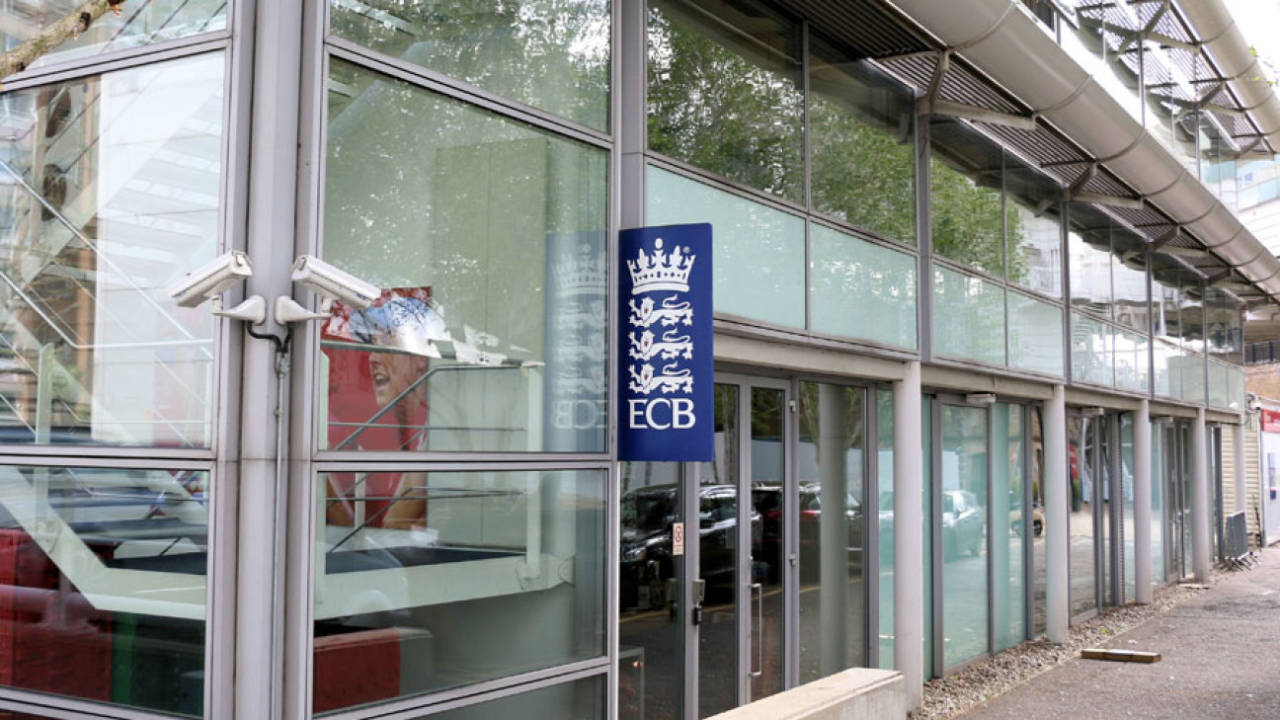ECB confident of 'long-term financial future' as accounts show significant dip in reserves
ECB accounts show reserves have dropped by around GBP 65 million in just two years
George Dobell
May 22, 2018, 9:59 AM
External view of the ECB offices at Lord's • ESPNcricinfo Ltd
The ECB has played down concerns over their finances after their accounts showed reserves have dropped by around GBP 65 million in just two years.
The accounts, published on the Companies House website on Monday, show that group reserves now stand at GBP 8.6 million. That figure was GBP 35.7 million in 2017 and GBP 73.1 million in 2016.
It reflects a second successive year of significant losses, with a loss of GBP 30.2 million reported for 2017 and a loss of GBP 37.3 million in 2016.
The ECB have previously stated their aim to keep reserves at around 40 percent of turnover; a formula that should see them somewhere around the GBP 50 million mark. The ECB's turnover last year was GBP125.5 million, up from GBP118.9 million the previous year.
They have also previously stated (in their accounts for the year ending Jan 31, 2016) "that this level of reserves protects the group from the unexpected cancellation of an ODI series or pair of back-to-back Test matches."
The ECB's reserves policy was put in place to mitigate against the risk of cancellation of series due to unforeseen events. In particular, the ECB are wary of terrorist attacks, a period of national mourning (in case a senior member of the royal family died) or the breakdown of a relationship with an overseas cricket board. During the previous four-year cycle (up to Jan 31, 2014) the ECB nearly doubled reserves from GBP23.3 million to GBP44 million despite making losses in two of the four years.
Admitting that "this reduction [in reserves] has occurred at a faster rate than originally modelled", the accounts concede that "reserves are scheduled to remain below the desired 40 percent of turnover."
But an ECB spokesman insisted the figures were explained by the cyclical nature of the business. And, with 2018 and 2019 (in which they host a World Cup and Test tours from India and Australia) expected to be significantly more lucrative, they insist the "long-term financial picture remains positive".
"We do operate on a four-year financial cycle with India and Australia's incoming tours generating the greatest proportion of overall earnings," the ECB told ESPNcricinfo. "With those two tours to come in next two years, together with the additional revenue to come from the new media rights deal post 2020, the long-term financial picture remains positive. In the medium to long-term we're projecting greater revenue growth which will help maintain reserves at a higher level."
They also explained that payments to the first-class counties had increased - figures show they received GBP32.2 million in 2016 and GBP38.2 million in 2017 - and the 40 percent target remained the "desired figure as a proportion of turnover".
Other items of interest in the accounts are confirmation of the GBP2.5 million payment to Glamorgan - a payment that chairman, Colin Graves, appeared to deny as recently as last week, and confirmation that Giles Clarke, the former ECB chairman and one-off president, resigned from the board in November.
George Dobell is a senior correspondent at ESPNcricinfo
